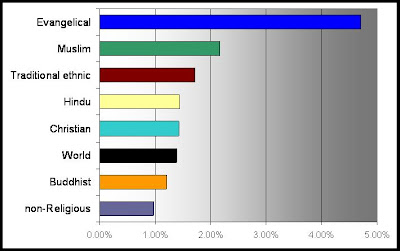
Another insightful commentary from a dear friend, Dr. Tan Soo Inn
GRACE AT WORK MAIL 3/07 [January 19, 2007 Edition]
"Commit your future to the Lord!Trust in him, and he will act on your behalf."(Psalm 37:5 NET)
Commentary: At 52
I just came back from a conference where I met some old friends and made some new ones. Some asked how old I was. I would answer, "I am 51," and then I realize that it is already '07. I will be 52 this year.Some questions went beyond the numbers. At a tea break someone asked "how young are you" and I gave him high marks for political correctness. When we had established my age someone else asked "what is it like entering your 50s?"A friend sitting next to me was my age and he replied that he felt that he was at the peak of his powers. I agreed.
When I look at my primary ministries these days, my preaching, writing, and spiritual mentoring, I recognize a degree of maturity that wasn't there in earlier decades. I also recognize the willingness to embrace the fact that I am far from perfecting my craft and that there is still so much more to learn. That too wasn't that evident when I was younger.I replied that as you enter your 50s you are more at home with yourself.
First off you know yourself better. You are more aware of your strengths and your weaknesses. You have made some degree of peace with your past. You are much more aware of both the darkness in your life and the immense brightness of the grace of God. You have come to see that our God is indeed a great God, and definitely a God much greater than our failures and mistakes.And because you know yourself better you are able to receive both praise and criticism more healthily. Since you have some idea of your strengths, praise that affirms your strengths will not come as that much of a surprise and has less power to balloon the ego. And since I am more aware of my weaknesses I am also less likely to be overly distressed when I receive criticism.I know that I am actually worse than the evidence of my obvious weaknesses and failures. I also know that I am carried by God's grace from beginning to end.
With the help of God and the encouragement of my friends I seek to be a better person, more approximating what God desires me to be. It's a journey that ends when I see Christ face to face. I am on the way.Recently, at a wake of all places, someone volunteered the conviction that I would live till a hundred. I found that hard to believe but was a little excited that somehow it might be true. In which case I prayed that God will give me the heath to go with the longevity.
When I was younger, I was told that the best years of your life was between 40 - 50. I haven't heard this piece of folk wisdom for a long time. In an age going through so much change, there is so much more to learn, and with better health care prolonging life in general, people are productive way beyond 50. I want to believe that the best years of my life are ahead of me.
There is a price to be paid for growing older. For example you find yourself attending more funerals. You find that you have to bid farewells to friends who have been called home/ to eternity, before you. That's tough.
And if you are a guy, you might experience male menopause. A recent
article in Newsweek asks me (guys after 50) to look out for the following symptoms. "...you realize that for some time you haven't had as much energy as you used to, you don't have as much interest in sex, there are times when you feel down and discouraged, and your friends tell you that you're more irritable than you used to be."(Federman and Walford, "Is Male Menopause Real? Newsweek, January 22, 2007, p.42) You can guess as to which of the above symptoms, if any, I am exhibiting. Growing older has its own set of challenges. Of course none of us know how long we will live. The days of our lives are written in God's book (Psalm 139:16) but He keeps that book close to His chest.
I know first hand the uncertainty of life. My first wife died of cancer at 37. Yet by all accounts she lived a full and faithful life.Therefore the wise thing to do, at whatever age, is to live life to the full for Him. We choose to be good stewards of our lives at whatever age we find ourselves. As long as God gives me breath I want to learn and relearn what it means to be a recipient of His grace, and how to pass that grace on to others.
At whatever age I find myself, I want to give my life back to God, my two fishes and five loaves, and ask Him to do with it whatever He wills.So as I approach 52, I heed afresh the Psalmist's advice: "Teach us to number our days,that we may gain a heart of wisdom." (Psalm 90:12 TNIV) And to Bernice, my beloved wife, I borrow the words of Robert Browning as invitation, hope and prayer:"Grow old with me. The best is yet to be."
Labels: Life Stuff, Really Random Musings




















































